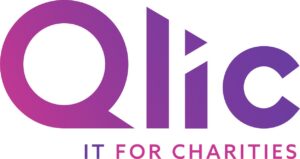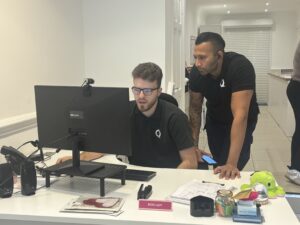As the workplace environment experiences its most significant transformation in decades, remote work has rapidly ascended from a temporary solution to a permanent solution. For many nonprofits, the shift to remote or hybrid models offers a host of benefits for both employees and the organisation, enhancing flexibility, reducing operational costs, and broadening talent pools.
Navigating this new landscape requires a strategic approach, particularly for nonprofits that operate under unique constraints and with distinct goals. Transitioning to remote work can impact everything from team communication and project management to donor engagement and volunteer coordination.
Recognising the critical need for effective strategies, this guide is designed to equip nonprofit leaders and their teams with the essential remote working best practices, promoting productivity and well-being in a remote or hybrid setting.
The Benefits of Remote Work for Nonprofits
As nonprofits continually adapt to changing work environments, embracing remote work offers significant advantages that align closely with their goals and operational strategies.
This section delves into the benefits of remote work for both the organisation and their employees, specifically tailored to the unique needs and structures of nonprofit organisations.

Nonprofit Organisation Remote Working Benefits
- Potential reduction of office costs
- Increased Employee Productivity
- Aids Recruitment and Retention
Let’s explore each of these further.
Potential Reduction of Office Costs
By reducing the need for physical office space, nonprofits can decrease their overhead expenses significantly. This financial advantage allows for more funds to be allocated towards impactful mission based activities, such as community programs, research, and outreach efforts. The flexibility to operate virtually can also reduce costs associated with maintaining a physical presence, such as utilities, office supplies, and maintenance.
Increased Employee Productivity
Remote work leads to increased productivity as employees often face fewer interruptions and office distractions. For nonprofits, where resources can be scarce, increased efficiency can translate into more effective program management and service delivery. Additionally, the ability to work remotely can also enable staff to work during hours that fit their productivity times.
Aids Recruitment and Retention
Offering remote work opportunities enables nonprofits to attract talent from a wider geographic area, including those who may be looking for flexible working conditions. This can be particularly beneficial for roles that are hard to fill locally. Furthermore, the flexibility of remote work can help retain staff who might seek flexible working arrangements due to personal circumstances. It also reduces the possibility of losing staff as a result of relocation.
Nonprofit Employee Remote Working Benefits
- Flexibility
- Better work-life balance
- Increased Employee Morale
Let’s dig a bit deeper into each of the benefits.
Flexibility
The flexibility that comes with remote work allows employees to create a personalised work environment and schedule that can lead to a more satisfying work experience. For nonprofit employees, this means they can manage their time in a way that aligns with personal commitments and peak productivity periods. The ability to adjust work hours is especially beneficial in roles that require collaboration with international teams or partners.
Better Work-Life Balance
Remote work eliminates commuting time, allowing employees more time for personal activities and family. This shift can lead to a better balance between personal life and work, increasing overall job satisfaction, reducing burnout and maintaining motivation for mission-driven work.
Increased Employee Morale
Remote work can lead to higher morale as employees feel more autonomy over their environment and schedule. Higher morale is crucial in the nonprofit sector where passion and commitment to the cause are high, and feeling valued and supported can enhance employee dedication and satisfaction.
By examining these benefits in detail, you can better strategise how to implement remote working practices to maximise effectiveness and impact within your organisation.
The Potential Challenges of Remote Work for Nonprofits
While the shift to remote work offers numerous benefits for nonprofits and their employees, it also presents a unique set of challenges that can impact effectiveness and productivity. Navigating remote working challenges requires careful consideration and strategic planning.
Here we’ll explore some of the challenges faced by both nonprofit organisations and their remote employees.
Nonprofit Organisation Remote Working Challenges
- Cyber Security
- Technology Management
- Lack of Face-to-Face Supervision
Let’s explore these challenges further below.
Cyber Security
Nonprofits handle sensitive data related to donors, beneficiaries, and financial transactions. Staying secure whilst remote working becomes more complex, as staff access organisational networks from various work locations. Implementing strong security protocols and regular training on cyber security best practices is crucial for protecting sensitive information.
Technology Management
Effective remote work depends heavily on reliable technology and infrastructure. Nonprofits might struggle with the resources needed to provide adequate technology support for all staff. This includes issues with software licensing, access to high-speed internet, and providing suitable hardware.
Lack of Face-to-Face Supervision
Remote work environment can complicate supervision and leadership due to fewer physical interactions. This can lead to challenges in monitoring staff performance and providing timely support. Developing clear communication channels and regular check-ins can mitigate these issues, ensuring that staff feel supported and accountable.
Nonprofit Employee Remote Working Challenges
- Employee Isolation
- Lack of Training and Guidance
- Poor Remote Set Up
Let’s dig deeper into each of these employee challenges.
Employee Isolation
Working remotely can often lead to feelings of disconnection from colleagues. This isolation can affect an employee’s mental health and overall job satisfaction. Encouraging regular team meetings and creating virtual spaces for social interaction can help maintain a community and support.
Lack of Training and Guidance
New remote workers can often feel out of their depth without in-person guidance. This can cause a slow onboarding process for new employees and difficulties in training volunteers or employees. Enhancing remote training modules and providing continuous online learning opportunities are vital steps to ensuring that employees feel competent and confident in their roles.
Poor Remote Working Setup
Not all employees have the ideal setup for remote work at home, which can lead to reduced productivity. Nonprofits may need to consider professional advice to help employees create a more effective home working environment, which is crucial for long-term sustainability of remote work arrangements.
Addressing these challenges requires a proactive approach from both nonprofits and their employees. By acknowledging and strategically addressing these hurdles, nonprofits can enhance their remote work models to benefit their mission and workforce.

Remote Working Best Practice for Nonprofits
As nonprofits embrace the shift to remote working, adopting best practices is essential to overcoming the discussed challenges, maximising effectiveness and maintaining a strong organisational culture.
Here we delve into several key strategies to optimise remote work in the nonprofit sector:
- Equip Your Team with the required technology
- Ensure Cyber Security Measures are in Place
- Embrace Technology and Remote Tools
- Provide necessary staff training
- Address any Practical or Technological Issues
- Adapt Workplace Policies and Procedures
- Inform Insurance Carriers
- Combat Isolation
- Customise Arrangements and Clarify Working Hours
- Acknowledge Different Environments
Equip Your Team with the Required Technology
Equipping hybrid and remote teams with the necessary technology is crucial. This includes reliable laptops, secure internet connections, and access to cloud services. Make sure to ensure every team member has the tools they need to remain productive and maintain seamless communication across different locations.
Ensure Cyber Security Measures are in Place
Implementing robust security protocols like multi-factor authentication, secure VPNs, and regular cybersecurity training can protect against potential breaches and maintain the integrity and trust necessary for successful operations.
Embrace Technology and Remote Work Tools
Utilising platforms like Microsoft Teams, SharePoint, and Intune for remote work can significantly enhance collaboration and productivity. These tools offer solutions for communication, document management, and device security, making them indispensable for nonprofits looking to streamline their remote workflows.
Provide Necessary Staff Training
Training staff in new technologies, working practices, and cyber security is vital. Regular training ensures that all employees are comfortable and proficient with the tools and practices that facilitate remote work.
Address Any Practical or Technological Issues
Nonprofits should anticipate and resolve practical or technological issues promptly, such as providing additional devices to secure data. Partnering with third-party suppliers can offer valuable support in managing these aspects efficiently.
Adapt Workplace Policies and Procedures
Adapting policies to accommodate remote work is necessary to address challenges unique to non-traditional work environments. This includes onboarding processes to ensure new remote employees feel integrated and supported from afar and updating health and safety policies to consider home office setups.
Inform Insurance Carriers
It’s important to update insurance carriers about changes in their operating practices. This ensures that your cover reflects new risks associated with remote work environments and equipment.
Combat Isolation
Nonprofits should foster a culture of collaboration through virtual social interactions to mitigate feelings of isolation among remote staff. Regular team meetings, virtual coffee breaks, and social events can help maintain team cohesion and support mental well-being.
Customise Arrangements and Clarify Working Hours
Customising work arrangements and clearly defining working hours are particularly important for teams in different time zones. Tailored working hours can help accommodate individual needs and lifestyles, which is especially beneficial in the nonprofit sector, where diverse roles may require varying schedules.
Acknowledge Different Environments
Recognising that each employee’s remote working environment is unique is crucial. Nonprofits should consider individual circumstances and provide support where necessary to ensure that all team members can perform optimally, regardless of their physical location.
By implementing these best practices, nonprofits can successfully navigate the challenges of remote work while maximising the productivity of their teams.

Closing Thoughts on Remote Working Best Practices for Nonprofits
Throughout this blog, we’ve clarified that the shift to remote work is a transformative shift that can fundamentally enhance how nonprofits operate and thrive in the modern world. We’ve explored crucial aspects that nonprofits must consider to harness the full potential of remote work. From equipping teams with the necessary technology and ensuring robust cyber security measures to embracing advanced remote work tools and providing essential staff training, each step is vital.
The journey towards effective remote work requires addressing a variety of challenges, including technological needs, personal work environments, and the mental well-being of employees. By implementing the best practices outlined in this guide, nonprofits can navigate these challenges and enhance productivity.
As we continue to adapt to this new normal, successfully integrating these strategies will play a crucial role in ensuring sustained success and impact of nonprofits in their invaluable work across communities and causes.
GET IN TOUCH
Would your charity like to find out more about ensuring you’re set up to work from home in the best way? Book your FREE Consultation with our IT experts at Qlic IT by clicking the button below.






